July has passed us by, and with it, the month long campaign dedicated to raising awareness about minimising the use of plastic. Plastic Free July first began in Australia in 2011 and has now grown into an international campaign. While the publicity campaign may have ended, this year the message seems to have permeated further. A new dedication and resolve is taking hold within communities and households. The ripple effect evident if one is discerning enough to notice.
Many businesses used the campaign month to highlight their own commitment to avoiding plastics in their business as well as demonstrating their ongoing sustainability objectives. Indeed, Australian Mutual Bank too is committed to minimising the amount of waste generated by its operations, as well as reusing and recycling as much waste as possible. You can read more about how Australian Mutual Bank is supporting this initiative (well beyond the month of July) here.
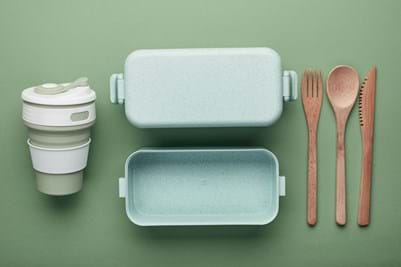
Even the Government has come on board by outlawing many of the single use plastics we’ve been trying to avoid. This handy table from The Australian Marine Conservation Society shows the timeframe for when items are being banned state by state. In June this year lightweight plastic bags were banned across New South Wales, but so too will a host of other single use plastics by November. Plastic straws, stirrers, cutlery, plates and bowls, expanded polystyrene food service items, plastic cotton bud sticks, and microbeads in cosmetics will all be banned by the end of 2022 thanks to new laws passed by the New South Wales Government.
To keep the momentum going, the month of August hosts Keep Australia Beautiful Week with this year’s seven day challenge to contain an entire week’s worth of waste in a single container. Participants are being encouraged to choose an existing container from around their home (be it a jar, bucket or tub) and commit to only producing as much waste as can fit in their chosen vessel.
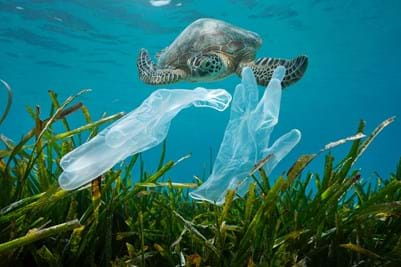
Despite motivational months and new laws the issue of plastic pollution can still seem a bit overwhelming, too big a problem to possibly tackle all on your own. Even when we’re told there will be more plastic than fish in the sea by 2050, it’s hard to really know where to start. However, its small changes across an entire community that will make a big impact long term (not just during the month of July). While Plastic Free July is designed to inspire change, it is the months that follow that will make the real difference.
Implementing new habits and gradual mindset shifts over time will transform your attitude and your lifestyle into one that's a little kinder on our planet. Here’s a few easy ways to start:
BYO
A milkshake isn’t a milkshake unless it’s sucked through a straw, the last bits slurped loud and proud. But for many people, it is the last straw! While many cafes and bars still automatically assume you want a straw (and won’t even ask before placing one in your beverage) unless it’s a cute striped paper straw, give it back and let them know why. Invest in stainless steel or silicon straws which can be used over and over (usually they come with a special brush tiny enough to clean the inside to keep them sanitary) and keep a couple in your bag or car. Even better, bring your own smoothie cup too complete with inbuilt straw like this one and avoid the takeaway cup altogether. The growing trend of ‘keep cups’ for cafe coffees is well established. Keep the momentum going by reducing the disposables for all takeaway purchases and home deliveries by using your own reusable cutlery, cups and plates.
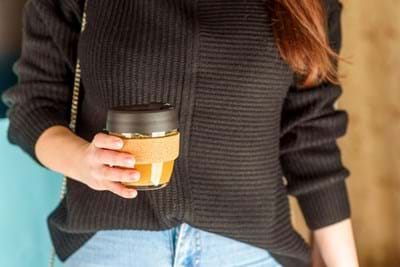 Bring your own reusable plastic or glass food containers with you go to shop to a deli. This one will take some preparation and organisation, because let’s be honest who walks around with Tupperware in their handbag? But how about throwing a few of your spare reusable food containers into the boot of your car to use next time you shop? Another easy swap is using mesh cotton bags when buying produce to avoid the flimsy produce bags.
Bring your own reusable plastic or glass food containers with you go to shop to a deli. This one will take some preparation and organisation, because let’s be honest who walks around with Tupperware in their handbag? But how about throwing a few of your spare reusable food containers into the boot of your car to use next time you shop? Another easy swap is using mesh cotton bags when buying produce to avoid the flimsy produce bags.
Buy in Bulk
Avoid plastic packaged foods altogether and shop at a co-op or bulk food store where you bring your own jars or fill paper bags with whatever you need. This may take a bit of a rewiring of the brain to get used to the concept, but the benefits are worth it. Not only do you avoid excessive plastic packaging, you get to buy exactly the amount you need. Plus you can recycle your own glass jars by filling them with all manner of grains, nuts and other dry foods. Places such as The Source Bulk Foods and Naked Foods are popping up all over the place as consumers’ demand for this kind of shopping experience increases. If you can’t find a local co-op or zero waste store aim to buy your essentials in bulk from the supermarket or purchase online to limit the packaging you go through. You can also purchase bulk amounts of cleaning products for body and home from eco friendly brands such as Envirocare. You’ll reduce your weekly supermarket shop, limit your plastic consumption and save with bulk buys.
Be More Mindful
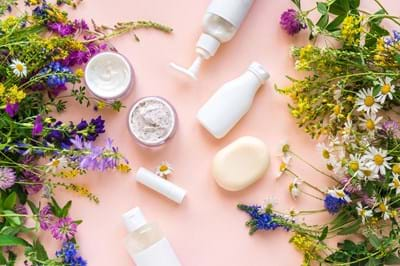 Price and quality will always be a deciding factor when purchasing any goods, but perhaps add to the ‘things to consider’ list what kind of packaging it is in. Could you go for the cardboard box of teabags over the plastic canister? The glass jar of coffee over the plastic one? Consider eliminating hand wash, body wash, shampoo and conditional bottles from your household entirely by swapping to solid soap bars and solid shampoo and conditioner bars. Yes, they are a thing, and I’m personally a forever convert after using them for the past 6 months. They take up hardly any space in your bathroom cabinet and last for months if kept dry between uses (I keep mine out of the shower recess between uses on a soap dish so they can dry out). You can also venture into making your own toxin free cleaning products to reduce even more packaging and keep your home (and waterways) free of chemicals, but that’s a whole other topic (and one I’ll cover soon).
Price and quality will always be a deciding factor when purchasing any goods, but perhaps add to the ‘things to consider’ list what kind of packaging it is in. Could you go for the cardboard box of teabags over the plastic canister? The glass jar of coffee over the plastic one? Consider eliminating hand wash, body wash, shampoo and conditional bottles from your household entirely by swapping to solid soap bars and solid shampoo and conditioner bars. Yes, they are a thing, and I’m personally a forever convert after using them for the past 6 months. They take up hardly any space in your bathroom cabinet and last for months if kept dry between uses (I keep mine out of the shower recess between uses on a soap dish so they can dry out). You can also venture into making your own toxin free cleaning products to reduce even more packaging and keep your home (and waterways) free of chemicals, but that’s a whole other topic (and one I’ll cover soon).
Small changes like these will make a larger impact over time. Consumers have a huge part to play in what is available on the market. Choose to support brands which are more conscious in their packaging choices and the larger less sustainable brands will eventually follow suit as the market will demand it of them.
Becoming more mindful about any type of consumption will always have a positive impact on our society and the environment. But by carefully considering purchases and rewiring our habits to reduce the trail of plastic behind to cultivate a more conscious consumer culture, we will also most likely save a few pennies too!
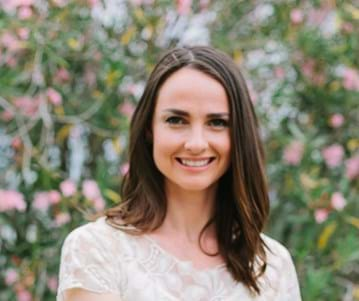
Alison Gallagher is a freelance writer, resourcefulness expert and entrepreneur. She has been featured in various publications including Stellar Magazine, Australian Health and Fitness Magazine, and Cleo Magazine. Alison is particularly passionate about sharing practical tips on how to live simply, sustainably and seasonally.






